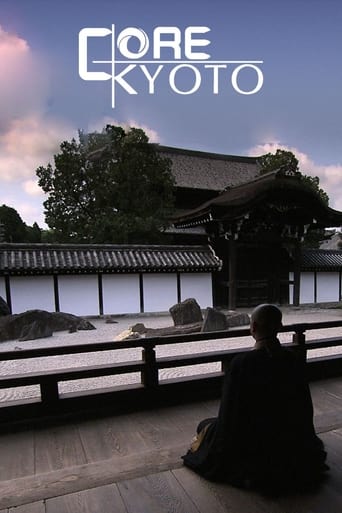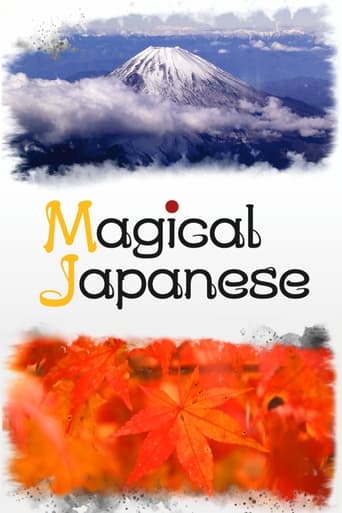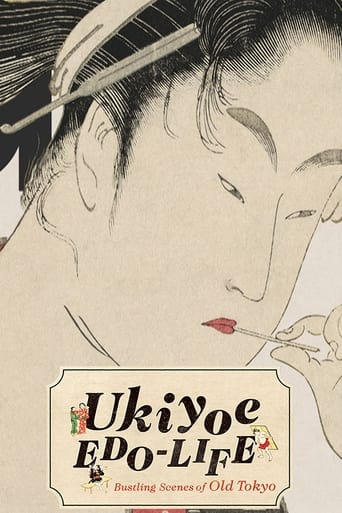Japanology Plus mini Season 2

A five-minute series where you can explore a wide variety of Japanese cultures, traditions and lifestyles.
Watch NowWith 30 Day Free Trial!
Japanology Plus mini
2020
A five-minute series where you can explore a wide variety of Japanese cultures, traditions and lifestyles.
Watch Trailer
Japanology Plus mini Season 2 Full Episode Guide
Japanology Plus explores Japanese life and culture. In this five-minute digest, we look at plastic food samples: astonishingly accurate replicas of real dishes. They can be found at the entrances to restaurants all across Japan, helping potential customers choose where to eat. They're made by expert artisans, who make molds of real food.
Japanology Plus explores Japanese life and culture. In this five-minute digest, we look at watches and clocks. Japanese timepieces are respected around the world for their accuracy and durability. We examine some clever and innovative examples, and learn about the leaps in accuracy being made by cutting-edge atomic clocks.
Japanology Plus explores Japanese life and culture. In this five-minute digest, we look at tiny houses: homes occupying around 50 square meters of land. They're appearing more and more in recent years, especially in crowded cities. Many of them feature unusual layouts and creative design. Low-cost prefabricated tiny houses, occupying as little as 12 square meters, are also gaining in popularity.
Japanology Plus explores Japanese life and culture. In this five-minute digest, we look at Furoshiki: traditional Japanese wrapping cloths. For hundreds of years, these square pieces of fabric have been used to protect, store and carry various objects. They often feature beautiful, colorful designs, and are works of art in their own right.
Japanology Plus explores Japanese life and culture. In this five-minute digest, we look at lacquerware, a traditional craft that has been taking place for thousands of years. It's made by coating objects in the sap of the lacquer tree. Lacquer offers incredible durability, as well as a distinctive luster that develops over time.
Japanology Plus explores Japanese life and culture. In this five-minute digest, we look at urban workshops. A significant portion of Japan's manufacturing industry is handled by small factories with less than 30 workers. Despite their small scale, many have highly specialized technical skills, and are world leaders in their field. We examine several examples of this expert craftsmanship.
Japanology Plus explores Japanese life and culture. In this five-minute digest, we look at rice snacks. Rice crackers and other rice-based treats have been widely consumed in Japan for hundreds of years. Many areas of the country boast their own unique type of rice snack. We examine how a common variety is made, and how the rice snack industry is diversifying to fit modern needs.
Japanology Plus explores Japanese life and culture. In this five-minute digest, we look at aloha shirts, popular symbols of Hawaii, worn by tourists and locals alike. A glance back at their history reveals a Japanese connection -- they were often made by people of Japanese descent, using materials and sometimes techniques from kimono making.
Japanology Plus explores Japanese life and culture. In this five-minute digest, we look at wasabi, a plant that grows natively in Japan's mountain valleys. It's used to make a condiment with a distinctive green color and an eye-watering heat. Most commonly served with sushi and soba, it has become a pillar of Japanese cuisine. We examine its history, and some of its many surprising uses.
Japanology Plus explores Japanese life and culture. In this five-minute digest, we look at miso, a fermented soybean paste that is a bedrock of Japanese cuisine. For many Japanese, it offers a taste of home. It is made using koji mold, a fermentation starter that only flourishes in Japan. We discover the surprising new ways miso is being served in modern-day Japan.
Japanology Plus explores Japanese life and culture. In this five-minute digest, we look at laundry services. There are over 90,000 cleaning establishments in Japan, and a huge number of Japanese use them regularly. Innovative machinery makes the process cheap and efficient. Stubborn stains are removed by masters of their craft. We go behind the scenes at an industrial laundry plant.
Japanology Plus explores Japanese life and culture. In this five-minute digest, we look at Osechi: a special meal eaten at New Year. It consists of multiple colorful dishes, served inside multi-tiered food boxes. The custom has diversified in recent years, but it remains deeply rooted in Japanese society. We learn about some of the most common dishes, and the meanings they represent.
Japanology Plus explores Japanese life and culture. In this five-minute digest, we look at Donburi: a bowl of rice with various toppings. It's quick, cheap and tasty, making it one of Japan's favorite comfort foods. There are a huge number of options available, ranging from Katsudon (fried breaded pork cutlet and egg) to Unadon (eel in a sweetened soy sauce).
Japanology Plus explores Japanese life and culture. In this five-minute digest, we look at plasterwork. This traditional craft is used everywhere, from castles to homes. The people responsible are plasterers, who use specialized tools and time-honored methods to achieve lustrous finishes and decorative motifs. Their diverse modes of expression can still be enjoyed today.
Japanology Plus explores Japanese life and culture. In this five-minute digest, we look at Karakuri Ningyo, or mechanical dolls. They don't use electricity or motors. Instead, they use clever mechanisms to achieve realistic, lifelike movement. Whether serving tea or performing acrobatic feats, the dolls have been entertaining the public for centuries.
Japanology Plus explores Japanese life and culture. In this five-minute digest, we look at Konamon: flour-based cuisine. Two popular examples are takoyaki, spherical snacks made with octopus; and Okonomiyaki, vegetables, seafood and meat mixed with batter. Having existed for centuries, Konamon, evolved in the 19th century, then took off after the Second World War, becoming a firm favorite.
Japanology Plus explores Japanese life and culture. In this five-minute digest, we look at Japanese dog breeds. They are quite difficult to train, because they become attached to a specific individual. There are 6 breeds native to Japan, including Shiba Inu and Akita. All of them were originally hunting dogs. They evolved to suit the region they lived in.
Japanology Plus explores Japanese life and culture. In this five-minute digest, we look at soba restaurants. Found throughout Japan, these restaurants serve a variety of soba dishes. From auspicious dishes served on New Year's Eve, to a quick meal wolfed down at a standing-only restaurant, soba is a quintessential part of Japanese cuisine.
Japanology Plus explores Japanese life and culture. In this five-minute digest, we look at rice cultivation. Introduced to Japan thousands of years ago, rice cultivation requires community effort and collaboration. Even today, most rice eaten in Japan is grown domestically. This means rice cultivation continues to be an essential part of Japanese society.
Japanology Plus explores Japanese life and culture. In this five-minute digest, we look at deep-fried food. This type of cooking is enjoyed as takeaway items and also made at home. Golden on the outside, and tender and juicy on the inside, deep-fried foods hold a special place in the hearts of Japanese people.
Japanology Plus explores Japanese life and culture. In this five-minute digest, we look at bladed tools. These items are used in countless situations, from cooking at home to providing frontline medical care. Made using incredible skill and traditional techniques, Japan's bladed tools even play an integral role in Japan's cuisine.
Free Trial Channels
Seasons

























































